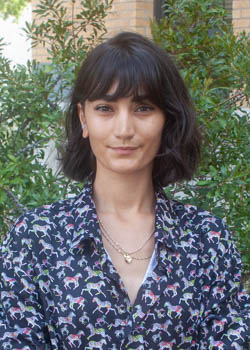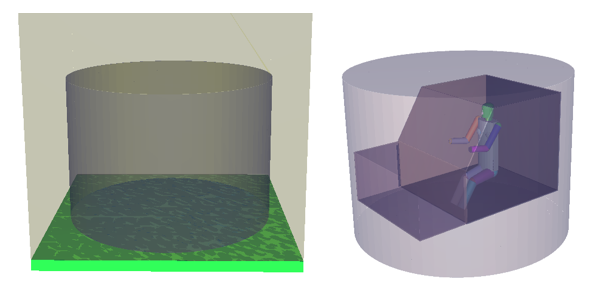Protecting emergency responders called to the scene of an incident involving radioactive materials is an important element of emergency preparedness and response. Sena Dalak, a graduate student with the Center for Nuclear Security Science and Policy Initiatives (NSSPI), is working with NSSPI Faculty Fellow Dr. Shaheen Dewji to evaluate the protection offered to these responders by their vehicles. According to Dalak, “In the event of radiological incident involving the release of radioactive material – whether accidental or from a malicious event – it may be crucial to estimate doses to individuals who are transported through contaminated areas by vehicles and the dose to operators of the transportation vehicles.”

Her work is a generic assessment of the effective radioactive dose received by an individual in transport under hypothetical radiological incident conditions. Remarking that standard transportation risk analysis codes used models that lacked sufficient realism in their vehicle configurations, Dalak employed various computational tools to develop more realistic models of both the vehicles and the humans inside them to more accurately predict the danger to individuals.
“Even every minute will be valuable for the emergency responders in the case of a nuclear incident that resulted in radiological dispersion,” Dalak explained. “Considering the differences in the calculated stay time data between the modeled vehicle and the simplified box, it can be concluded that the more realistic vehicle data will better inform the emergency responders about how much time they could spend in contaminated environments since the radiation protection factor values were overestimated for the box models.”

Dalak hopes that her work will help emergency responders in both civilian and military contexts more quickly and accurately evaluate their risk in employing transportation vehicles under certain conditions.
Dalak graduated with a B.S. in Nuclear Engineering from Hacettepe University in Turkey and was awarded the opportunity to study abroad by the Turkish government. Upon completion of a Master of Science in Nuclear Engineering in the summer of 2021, she will return to Turkey to play a key role in developing health physics technology and the nuclear industry in general as part of the Turkish Nuclear Regulatory Authority.